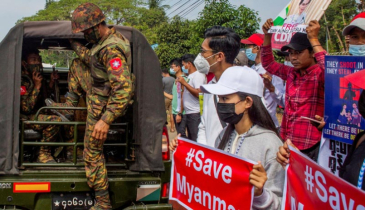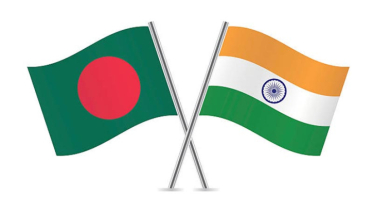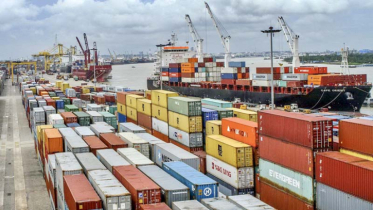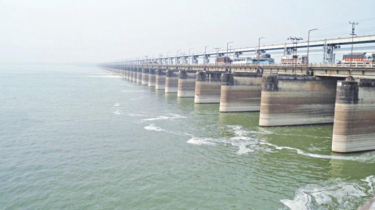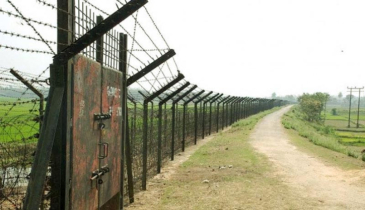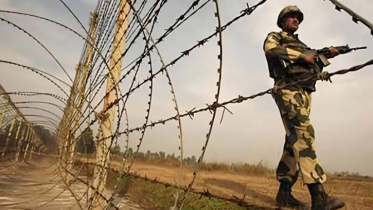SOUTH ASIAN HYDRO-POLITICS: What should Dhaka do for fair share?
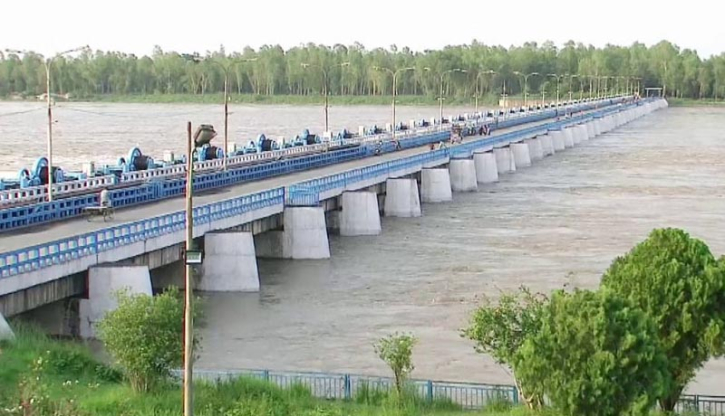
Teesta barrage
SOUTH Asia’s hydro-politics is marked by a complex web of transboundary rivers, riparian positions, and power dynamics, often leading to disputes over water sharing. The situation is particularly strained between India and China concerning the Brahmaputra River and between Bangladesh and India, which share 54 transboundary rivers.
For Bangladesh, the Teesta and Ganges rivers are of primary concern, with equitable water distribution remaining a significant challenge in its relationship with upper-riparian India. As climate change exacerbates water scarcity, the need for fair and sustainable water management becomes ever more critical for regional stability and cooperation. In this context, Bangladesh needs to expand its effort to multi-dimensions – diplomatic negotiations, public diplomacy and search for technological solutions.
South Asian hydro-hegemony
HYDRO-POLITICS in South Asia is largely defined by the dynamic between upper-riparian and lower-riparian countries. The upper riparian state, by virtue of its geographical position, often wields considerable influence over the flow and distribution of water resources. In South Asia, the upper riparian often capitalises on the situation for its own benefit, ignoring the lower riparian’s demand. This power position over the course of water is known as hydro-hegemony, a term coined by prominent Indian scholar Brahma Chellaney while describing hydro-politics between India and China.
While India faces hydro-hegemony from its upper riparian China, in the case of Bangladesh and India, it assumes the same role. India, as the upper riparian country for Bangladesh, holds a position of advantage, enabling it to undertake unilateral projects such as dam construction, flow diversion, and canal digging. These actions often result in adverse consequences for Bangladesh, including overflow during the monsoon season and underflow during the dry summer months, impacting agriculture, livelihoods, and the environment.
Despite existing treaties, such as the Indus Water Treaty between Pakistan and India and the Ganges Water Sharing Treaty between Bangladesh and India, disputes dominate in South Asia’s hydro-politics narratives.
However, cooperation does exist, as the Joint River Commission between Bangladesh and India serves as a platform for dialogue and cooperation, but its effectiveness is often hampered by power imbalances and a lack of consensus on equitable water sharing.
Bangladesh-India hydro-relations
THE current state of hydro-relations between Bangladesh and India is characterised by a mix of cooperation and contention. Unilateral decisions by India, such as the recent opening of dam gates without prior notice, have led to devastating floods in Bangladesh, highlighting the vulnerability of the lower-riparian state. The Ganges Water Sharing Treaty, a landmark agreement signed in 1996, is set to expire in 2026, necessitating renewal negotiations. While the treaty has provided some benefits to Bangladesh, concerns remain regarding its effectiveness and the need for revisions to address existing flaws and malpractices.
The long-standing Teesta River water-sharing agreement remains elusive, with negotiations stalled due to various challenges emanating from the Indian side, particularly the concerns of West Bengal. This delay has significant implications for northern Bangladesh, where the Teesta River is drying up, leading to environmental degradation, agricultural disposition, and economic hardship.
Key challenges in peaceful water-sharing
THE primary challenges in peaceful water-sharing mostly originate from the Indian side. Its unilateral decisions regarding river basin management capitalising on its riparian position bring adverse impacts for Bangladesh. The ineffectiveness of JRC and lack of strong commitment to existing treaties fail to ensure the proper flow. Furthermore, the variety of stakeholders in India and their diverse interests due to its federalism also contribute to the delay in inking agreements. For instance, while West Bengal opposes the Teesta agreement and has dug multiple canals from Teesta to divert water, Bihar on the other side also faces floods like Bangladesh due to this condition. Lastly, as both India and Bangladesh are not signatories of the UN Convention on International Watercourses, there is no legal compulsion from India to adhere to the international standard here.
What Bangladesh should do?
TO ENSURE its fair share of water resources, Bangladesh must adopt a multi-faceted approach encompassing preparedness for treaty renewal negotiations, a clear stance on the Teesta River agreement, technological interventions, and sound public diplomacy.
Firstly, Bangladesh needs to prepare thoroughly for the renewal negotiations of the Ganges Water Sharing Treaty, set to expire in 2026. This preparation should involve a comprehensive assessment of the treaty’s performance over the past three decades, identifying any flaws, loopholes, or malpractices that have hindered its effectiveness. Bangladesh must gather credible data and evidence to support its claims for a more equitable water distribution arrangement, taking into account the changing hydrological realities and the impacts of climate change.
Secondly, Bangladesh needs to seek a clear and definitive commitment from India on the Teesta River water-sharing agreement. The prolonged delay in finalising this agreement has caused immense suffering for the people of northern Bangladesh, and India must demonstrate the political will to resolve this issue fairly and equitably. Bangladesh should explore all possible avenues for dialogue and negotiation, including involving neutral third parties or international mediators, if necessary, to break the deadlock and reach a mutually acceptable solution.
Thirdly, Bangladesh should embrace technological interventions to mitigate the impacts of water scarcity and improve water management. The Teesta River Comprehensive Management and Restoration Project, with the help of Chinese technology, represents a significant step in this direction. By leveraging technological solutions, Bangladesh can enhance its water storage capacity, improve irrigation efficiency, and restore the ecological health of its rivers.
Moreover, Bangladesh should explore opportunities for technology transfer and knowledge sharing with other countries facing similar water challenges, ensuring that it remains at the forefront of innovation in water resource management. Given the increasing affordability of technology, Bangladesh can seek technological solutions in other cases as well. Bangladesh’s seeking technological solutions to water-sharing would also serve as a soft deterrence to India’s unilateral decisions and stalling water-sharing agreements. It would also leverage Bangladesh with a geopolitical advantage in regional politics.
Fourthly, Bangladesh may consider signing international instruments on water-sharing and river basin management, such as the UN Convention on International Watercourses and the Berlin Rules of Water Resources, popularly known as the ‘Berlin Agreement’. Signing such conventions would provide Bangladesh with international consensus and introduce international standards in bilateral negotiations with a reference value.
Finally, Bangladesh must pursue sound public diplomacy with India to promote its perception to the people of India, especially in West Bengal. Such a campaign would also help in recognising the importance of maintaining stable and cooperative bilateral relations among the neighbours. While the pursuit of equitable water sharing is a legitimate and non-negotiable objective, it should be pursued through peaceful and constructive means, avoiding any actions that could escalate tensions or undermine trust. Bangladesh should emphasise the shared benefits of cooperation on water management, including flood control, navigation, and environmental protection, and work towards building a relationship based on mutual respect, understanding, and shared prosperity. Despite the present strain in bilateral relations, both countries must emphasise the need for long-term thinking.
To conclude, water will become an important element in South Asian geopolitics in the coming days due to environmental degradation and lack of clean water. The path to equitable water sharing may be fraught with challenges, but with determination, innovation, and sound diplomacy, Bangladesh can overcome these obstacles and secure a sustainable future for itself and its neighbours. -Source: new age
.png)


